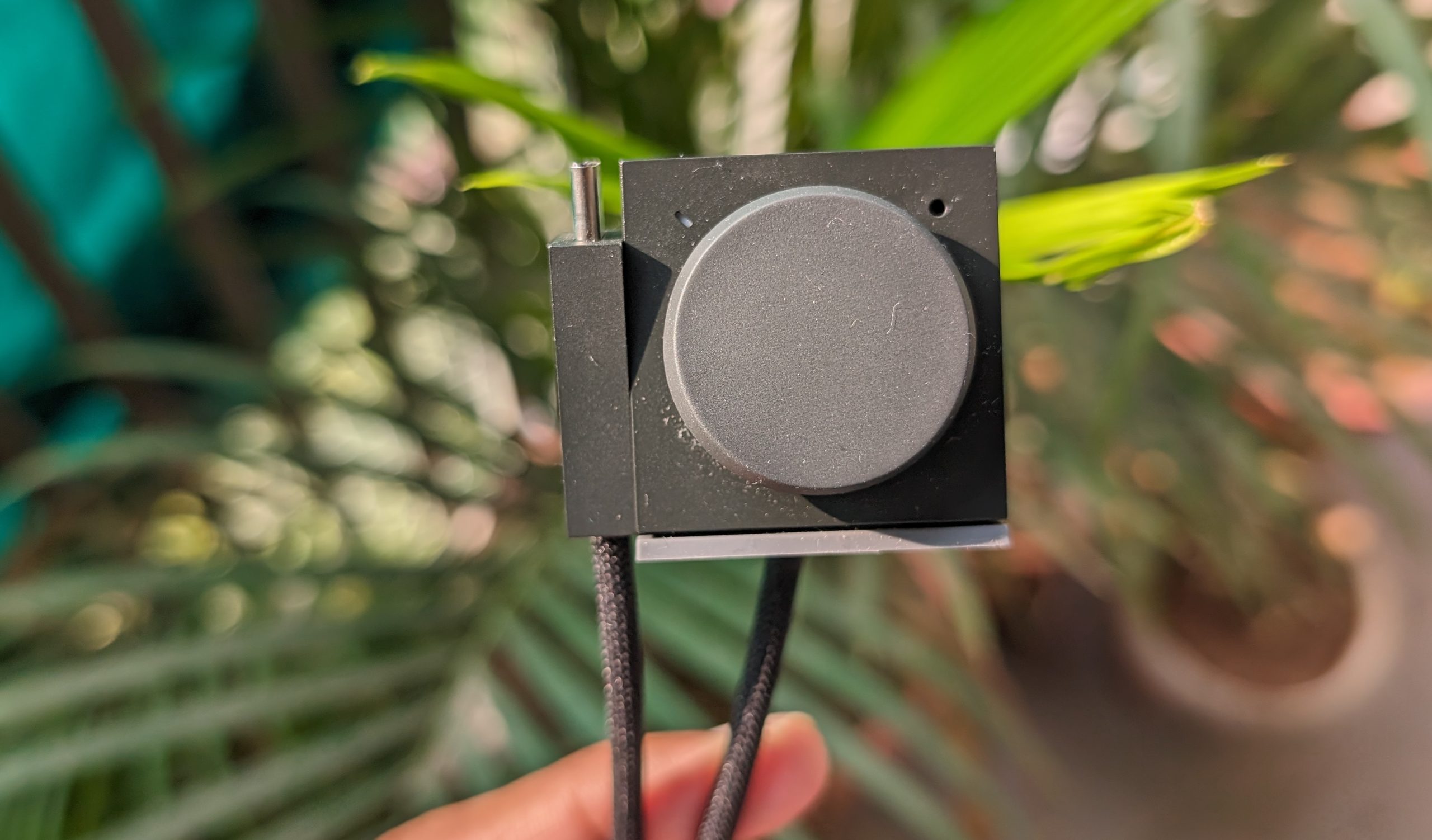I’ve had the same gripe with laptop webcams for years. They work fine indoors, but once I step out of the confines of my well-lit home office, they don’t hold up. At cafes and airport lounges, I’m often scrambling to find a sweet spot where my laptop’s webcam doesn’t turn me into a shadow against a bright window or overly soften features in dim areas, and usually, I fail. Can Opal’s Tadpole webcam be the solution?
Laptop webcams have come a long way and in general, they no longer make us look like we’re speaking from an underground bunker. Even Apple, after decades of shipping a poor 720p webcam, upgraded it in late 2021. Yet, there’s only so much manufacturers can fit in slim notebook bezels. For remote workers, especially, most laptop webcams still fall short in even somewhat challenging conditions, they can’t match the quality we’re used to on our smartphones. Besides, most external webcams aren’t travel-friendly, nor laptop-friendly. This is where Opal’s new Tadpole steps in.
Tadpole comes from a new startup called Opal — backed by tech luminaries, including founders of Instagram, Reddit, and YouTube and influencers like Casey Neistat. It offers a fresh, modern take on webcams — one that’s easy to carry, doesn’t sprawl across the top of your machine or has a giant, ugly clasp. It’s a tiny, high-end webcam built exclusively to be pinned on notebooks and comes equipped with a bunch of unique perks, such as a capacitive mute button right on the USB plug.
Despite these, though, $175 can feel like a tall ask, given you can now just use your phone as a webcam instead. I carried around the Opal Tadpole for over a month with me. Here’s whether it’s worth it.
Opal Tadpole: Price and availability
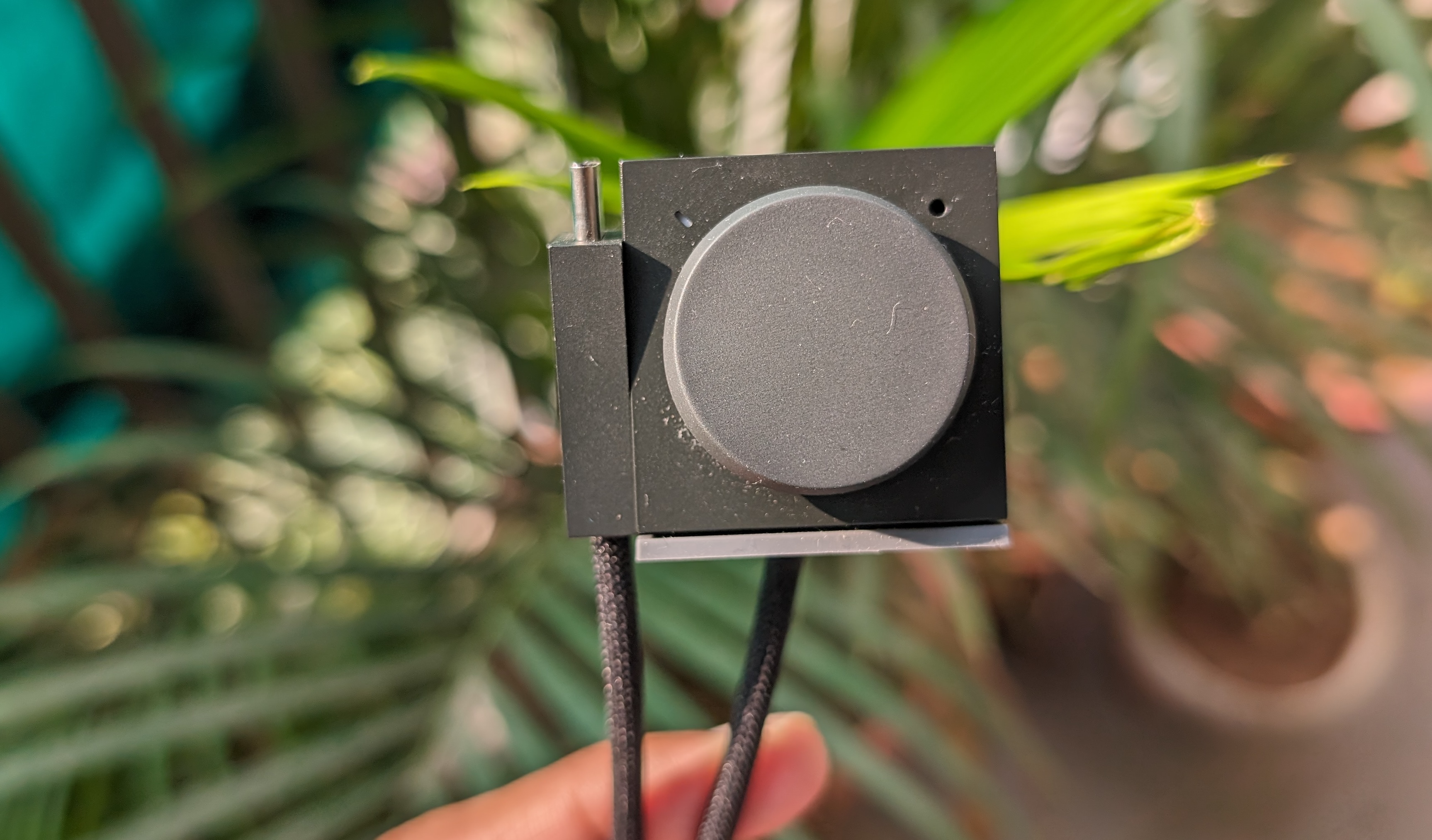
While the full retail price for the Opal Tadpole is $175, if you shop around a little (we make that easy with our links above) you will find it for around $130. It’s still a premium price point, but far cheaper than many 4K webcams that we’ve tested and it is hard to put a price on the size advantage the Tadpole offers.
While some of our picks for the best webcams come in under $100, for its typical $130 price, the Opal Tadpole is an excellent value for its unmatched blend of size and image quality.
Opal Tadpole: Design
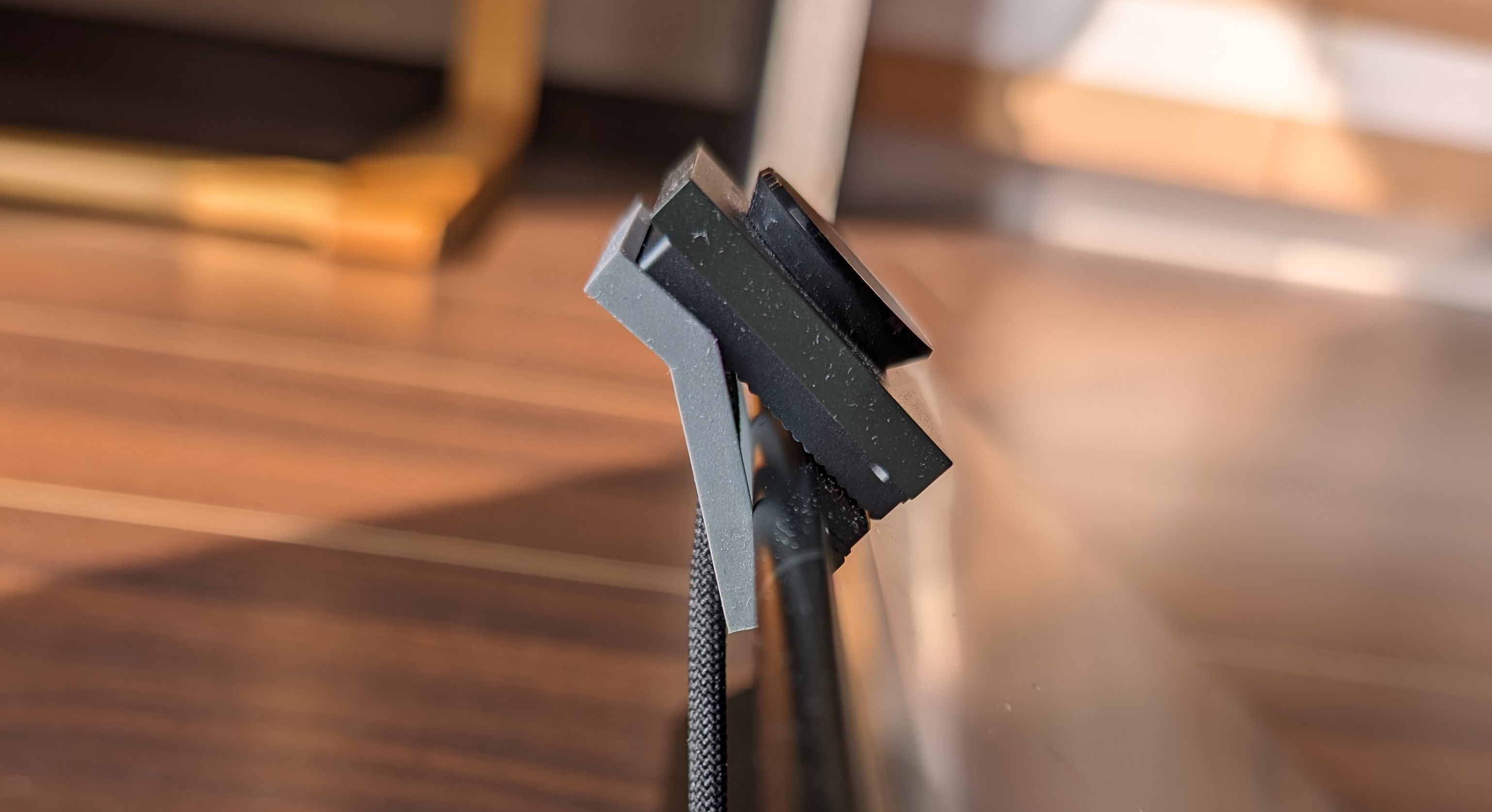
Tadpole is engineered by former Apple designers and it shows. It reminds me of the iPod Shuffle, with its compact and minimal squared design. It looks as if someone stuck a camera sensor to a clip attachment. The all-aluminium exterior is well-refined (the clip is plastic) and at 35 grams, it’s light enough to not put any strain on your laptop’s lid.
A thick braided cable juts out from the back of the Tadpole and goes through a neat, little cable organizer that allows you to comfortably adjust its length without turning your setup into a mess. There’s also an LED light on the front to indicate when the camera is active.
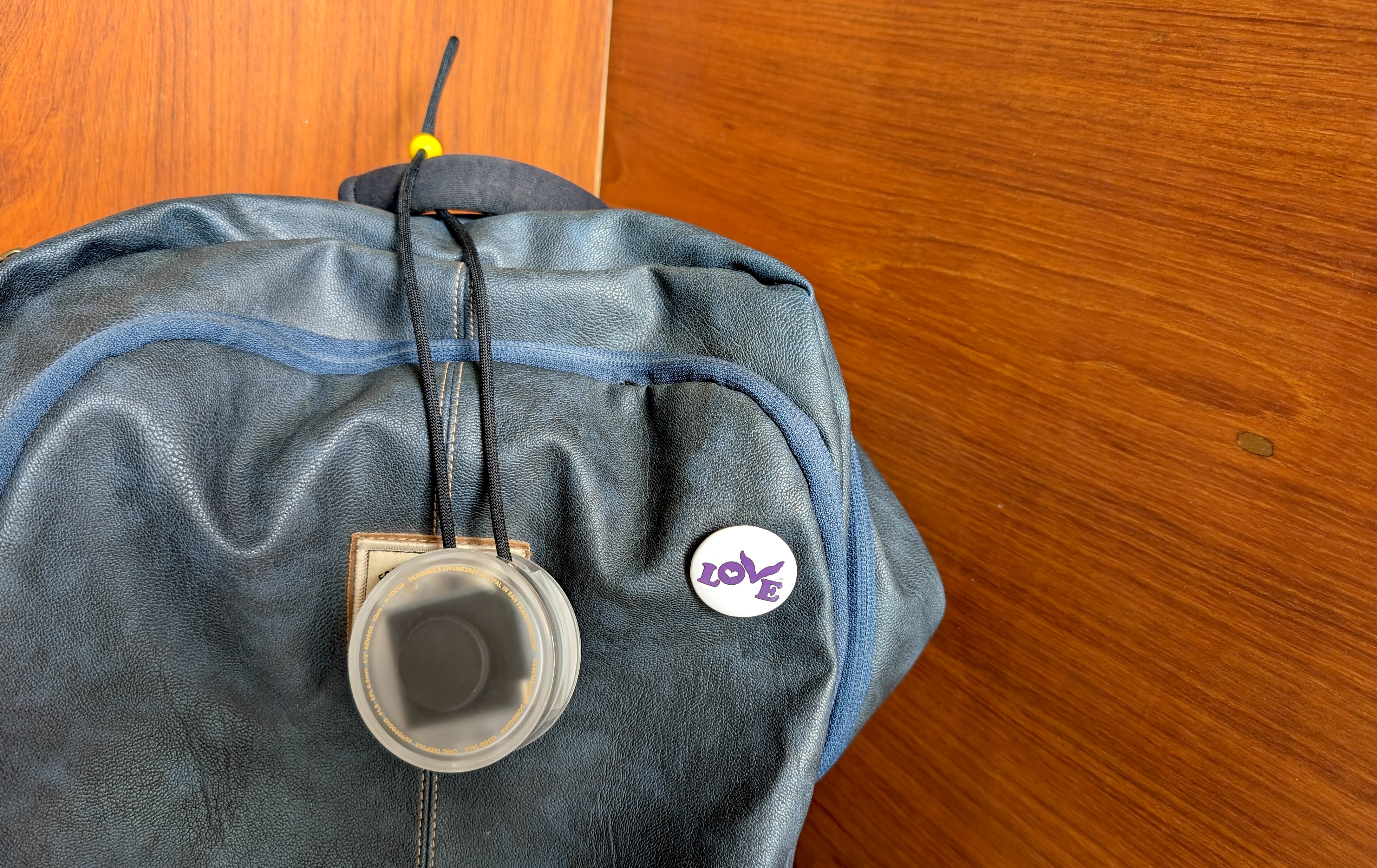
Another clever design tidbit is the USB-C port itself. One of its sides houses a magnet so you can stick it to the webcam and create a loop to hang it on, say, your laptop bag. Though Opal bundles a silicon cover for the webcam in the box, you can also purchase the cute, optional $25 “yoyo” travel case that adds both protection and an extra bit of style when you are carrying it.
Irrespective of what you think of the Tadpole’s aesthetics, the one thing it is for certain is a head-turner. Nearly every other day, a stranger in public or a friend asks me about the Tadpole when I pull it out of its case. It’s also remarkably convenient to use and travel with. It doesn’t take up much space, clips on and off in an instant, and looks sleek.
While the 35-degree clip will prevent you from mounting the Tadpole on most desktop monitors, I didn’t face any trouble pinning it on top of my slim monitor. The problem is the ~22-inch cable is too short to reach the computer’s USB port.
Opal Tadpole: Video quality
None of the rest would matter, of course, if the Tadpole can’t beat my laptop’s built-in camera, and it does — so much so the people I spoke to frequently noticed and commented on it. The jump in quality is close to switching from an old feature phone to a smartphone.
Tadpole is equipped with a 48-megapixel Sony sensor, which you can find on three-year-old Samsung phones, and an f/1.8 lens. No built-in traditional laptop webcam comes close to those specs. It captures sharper, more vibrant details and does a far better job of balancing the scene’s highlights and shadows. Most laptop webcams, like the latest MacBook Air, have a soft and flat image quality by comparison.
Plus, there’s more depth in Tadpole’s results, again similar to what you’ll experience on a smartphone camera. What I especially like about the Tadpole is how it manages to retain my face’s features, unlike the washed-out and overly exposed results I get on my MacBook’s webcam.
While it makes a good lighting scenario even better, the Opal Tadpole particularly shines in challenging scenarios. If I’m sitting against a bright window, for example, Tadpole doesn’t let the light bleed into the rest of the frame and produce an awkward halo around my face. It controls it while keeping me in focus. This extends to low-light scenarios, where it, like a phone camera, takes advantage of whatever light you have available (like the screen) to highlight your facial details, unlike a typical laptop webcam that will produce a soft, grainy mess.
The only concern I have with the Opal Tadpole is on long calls (~1h+), it does tend to heat up and though it never crashed, I’m worried whether it could have an adverse effect on the laptop’s screen. However, I’ve yet to experience any issues and a search among other Opal Tadpole users and reviewers doesn’t turn up any such problems.
Opal Tadpole: Sound quality
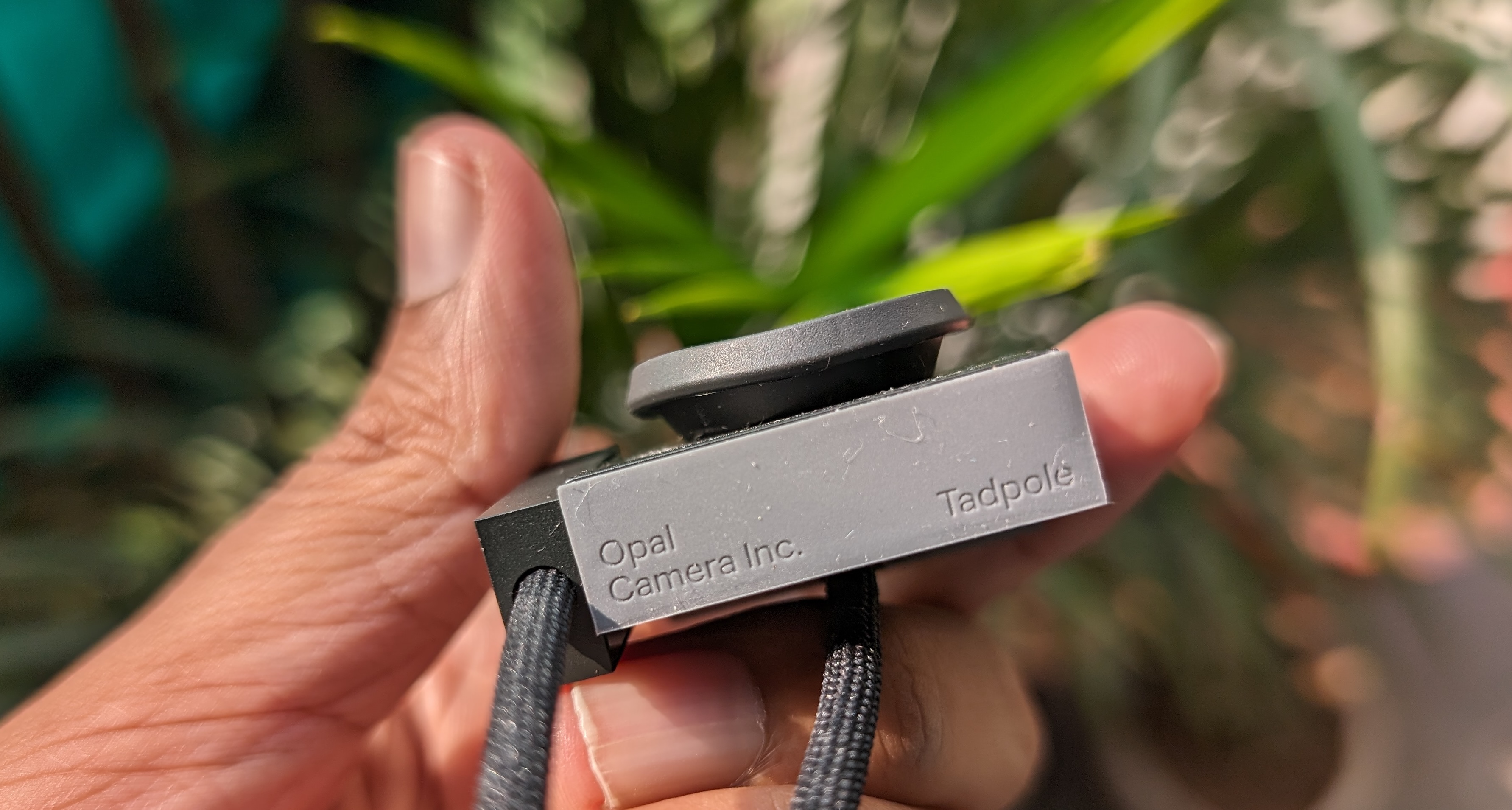
The Tadpole also has what Opal calls a “Visimic.” It’s a directional mic, which means it only picks up the sound in the webcam’s field of view. So say you’re at a cafe, it should theoretically just hear you i.e. the person sitting in front of it and not the strangers bantering at the table next to you. It’s a neat idea and works nearly as Opal intended.
Most of the time in my testing, Tadpole’s mic did well to cut out background noise and capture crisp audio. However, it can be inconsistent, and even when I adjust a bit in my seat while speaking, it sometimes fails to pick up my voice altogether, resulting in a break in audio for the other person. For now, I’ll stick to my noise-cancelling earbuds, and turn to the Visimic only if I accidentally forget them at home.
I also wished the Tadpole’s mute switch was more versatile. To shrink the webcam to the tiniest possible size, Opal outfitted the USB plug with a touch button that’s hardwired to mute its built-in mic. This means you can’t use it to, say, mute yourself on Zoom if you have not selected Visimic as your preferred mic input.
Opal Tadpole: Software and support
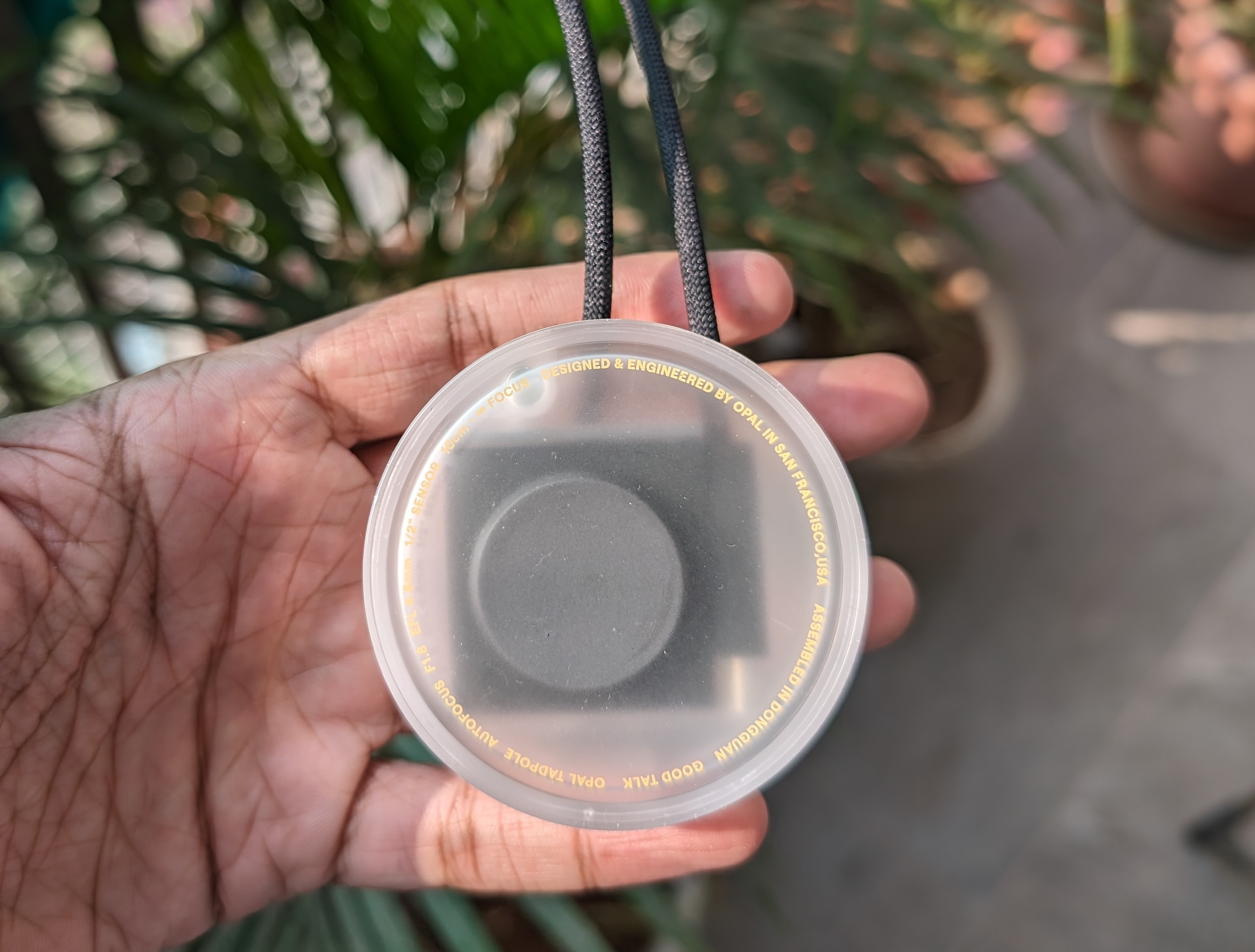
Opal’s first webcam, C1, was mired in software troubles. It was cumbersome to set up and only worked on a Mac. With Tadpole, Opal did a complete 180. You plug it in and it’s ready to go right away on macOS or Windows. There are no annoying software pop-ups, nor do you need to download any extra plug-ins. It shows up on all major video-conferencing platforms I tried, including Google Meet’s website, and Cisco WebEx.
That said, Opal’s companion app for C1, Composer is available for Tadpole, but it’s still only compatible with macOS. It lets you tweak a host of settings, from adjusting your video feed’s bokeh to layer it with text and effects.
The Opal Tadpole comes with a one-year limited warranty.
Bottom line
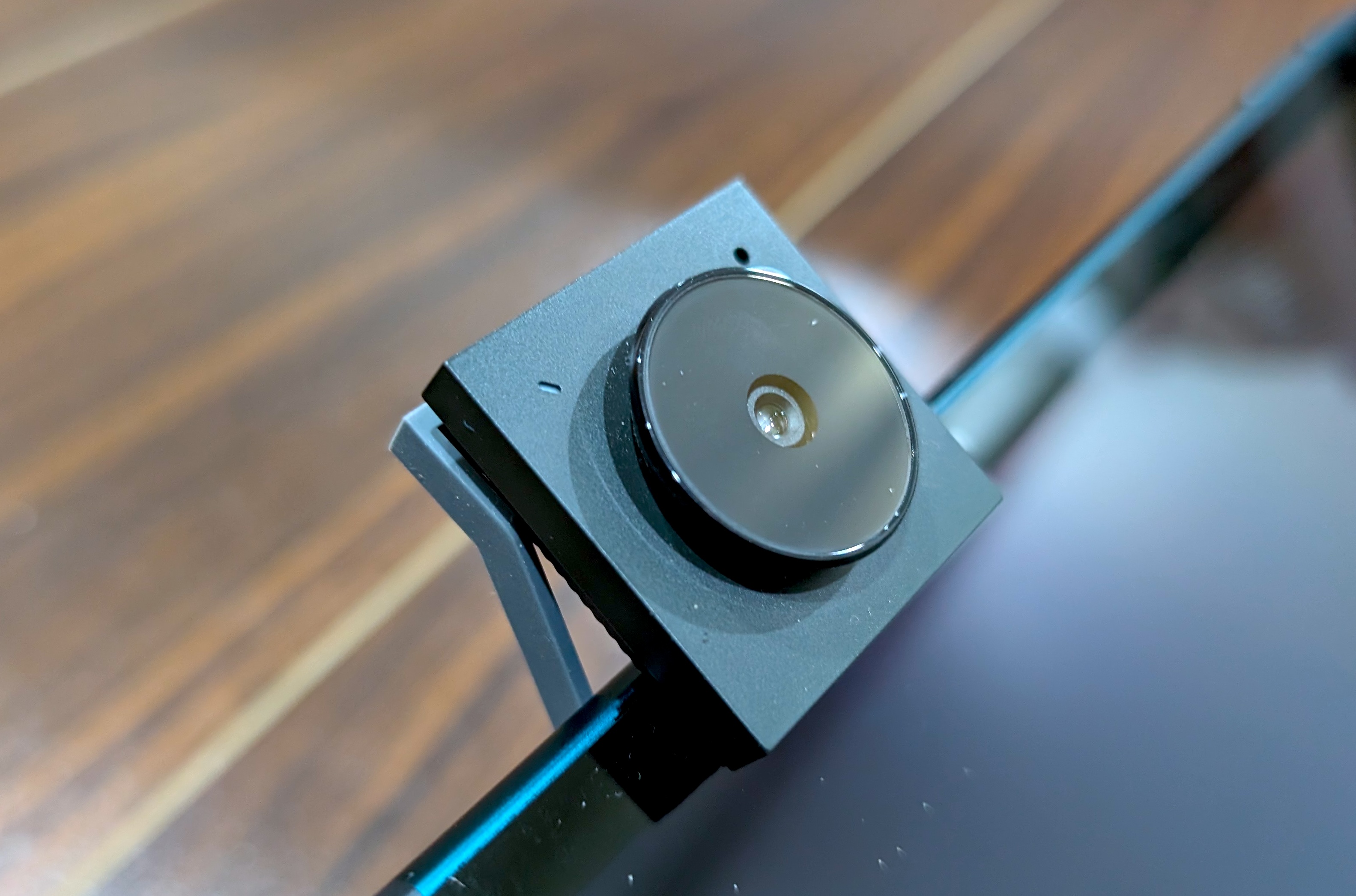
The Opal Tadpole delivers on its promises. For $175 (usually on sale for $130), it’s the sharpest laptop webcam you can buy and nearly half the price of other 4K webcams. Its plug-and-play experience as well as compact design makes it a no-brainer for people who are often on video calls on the go.
At the same time, though, it’s easier than ever to turn your smartphone’s even more capable camera into a webcam with features like Apple’s Continuity Camera. But if that’s not an option for you either because you prefer to preserve your phone’s battery life on the road or you find mounting it a hassle, the Tadpole is an outstanding standalone option.

